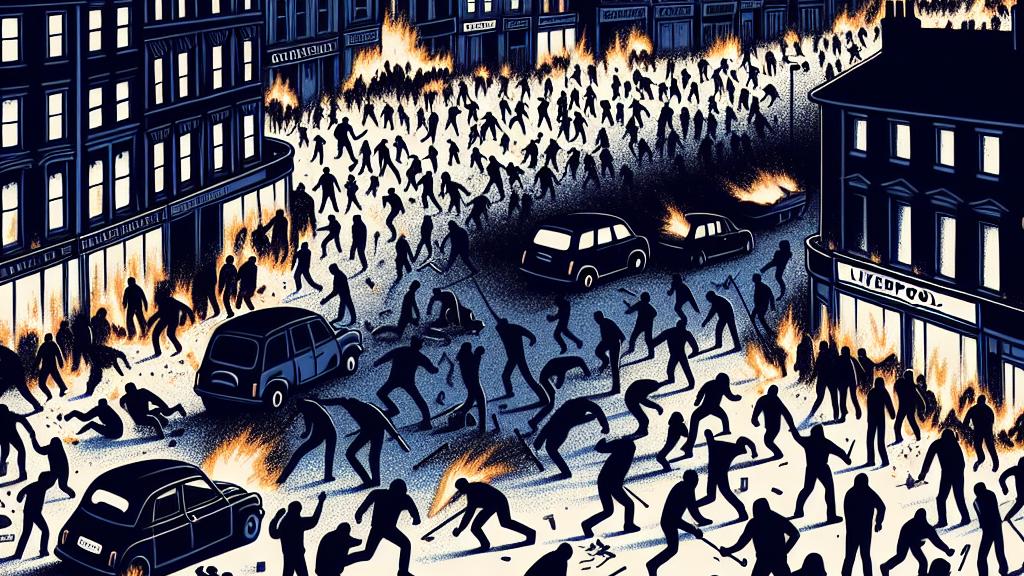UK in Chaos: Prisons Overflow as Protests Ignite Amid Anti-Immigrant Fury!
Overview
- Intense protests across the UK driven by anti-immigrant anger.
- Government response includes expanding prison capacity amidst rising violence.
- International warnings issued as safety concerns mount in the UK.

Protests Sparked by Tragedy and Misinformation
The United Kingdom is currently engulfed in widespread protests following the heartbreaking murders of three young girls at a Taylor Swift-themed event in Southport. This tragic incident triggered rumors online, linking the suspect to immigration, which ignited a wave of anti-immigrant protests and riots across the country. Major cities, including Liverpool, Plymouth, and Belfast, have seen chaos as demonstrators clashed violently with police, vandalized properties associated with migrants, and expressed their fury through chants like "get them out." This significant outbreak of unrest represents one of the largest societal upheavals in recent years, reflecting deep-seated tensions within the community.
Government Measures to Address Riot-Induced Crisis
In direct response to the escalation of violence and unrest, the UK government has swiftly moved to expand prison capacity, attempting to accommodate the increasing number of individuals arrested during the riots. Justice Secretary Shabana Mahmood announced the addition of nearly 600 prison places to counteract the crisis of overcrowding faced by the justice system. Approximately 400 people have already been arrested, and the ongoing situation has drawn attention to the current conditions within UK prisons, which are already struggling with high occupancy rates. Critics warn this approach may worsen prison conditions, compromising inmates' wellbeing and hindering rehabilitation efforts, thus perpetuating cycles of crime.
International Reactions and Public Sentiment Division
The violence and unrest have caught the attention of global governments, with countries such as India, Australia, and Nigeria issuing travel warnings to their citizens concerning safety when visiting the UK. This growing international apprehension reflects broader concerns about public safety and societal stability in the region. Domestically, the public sentiment is markedly split; while some community members quickly scapegoat immigrants for societal issues, others vocalize support for migrants and denounce the violence. This stark division reveals an urgent need for compassion and understanding, prompting calls for constructive conversations around immigration and community integration.
Moving Towards Healing: Emphasizing Dialogue and Understanding
The current turmoil highlights the fragility of social cohesion within the UK, illustrating the imperative for community-driven approaches to address rising tensions and foster understanding between diverse populations. Initiatives rooted in education and open dialogue can help dispel the myths surrounding immigration, emphasizing the contributions immigrants make to society. Community forums and programs promoting interaction between long-time residents and newcomers can break down barriers and foster mutual respect, ultimately paving the way toward a more inclusive society where differences are celebrated rather than feared.
Broader Implications for Social Cohesion
As the UK grapples with these profound challenges, the broader implications of these protests extend beyond immediate unrest. The situation serves as a critical reflection of societal norms and the influence of misinformation on public behavior. Understanding the psychological underpinnings of prejudice and fear, as presented in research, can guide effective policy changes that aim to improve community relations. Policymakers must prioritize strategies that promote integration and support vulnerable groups, ensuring a balanced approach that addresses both concerns about immigration and the safety of marginalized communities.

Loading...